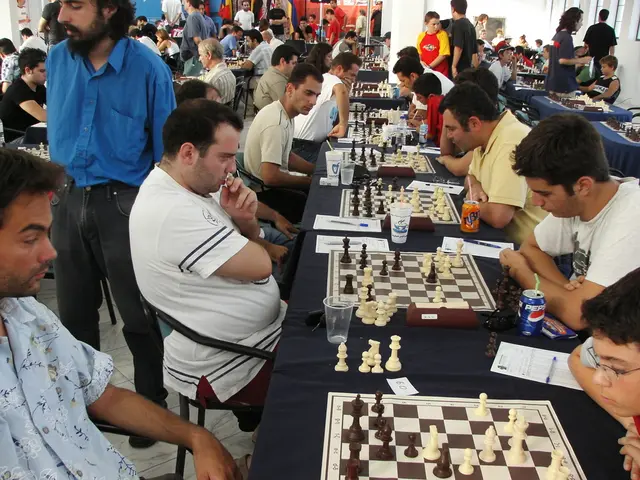Generous cash rewards at the 2023 World Series of Poker incites optimism about poker-related taxes, according to Fiskus.
In the world of poker, the stakes are high, both on and off the table. This is especially true for professional players in Germany, where the tax treatment of poker winnings can significantly impact their earnings.
Poker is not considered a pure game of chance in Germany. Success in poker is believed to be mainly dependent on individual skills, and as a result, professional poker players are subject to paying taxes on their winnings. If poker is a player's primary source of income and career, their winnings count as taxable income and can be subject to very high tax rates, potentially up to 90% depending on income levels and tax brackets[1].
On the other hand, casual or recreational players whose gambling is not their main income source typically do not pay tax on poker winnings in Germany[1]. It's essential to establish the professional status of a player to determine their tax liability.
For professional players, maintaining detailed records of all play sessions, wins, and losses is recommended to support income declarations and possible deductions. However, recent international tax changes suggest high-volume players face complex rules for deducting losses, sometimes capped at 90% of losses against winnings, which could increase taxable income significantly[2][4].
The WSOP Main Event 2023 saw several finalists from countries other than Germany, including Ruslan Prydyk (Ukraine), Juan Maceiras (Spain), and Daniel Holzner (Italy), who also have to pay significant taxes in their respective home countries. Notably, the IRS is set to receive over $9.6 million from the American finalists of the WSOP 2023 Main Event[3].
The tax treatment of professional poker players in Germany is not always straightforward. There is no clear definition of a professional poker player in German law, and individual decisions are made on a case-by-case basis[5]. This complexity has led some German poker pros to move to countries with lower or no taxes, such as Koray Aldemir.
In contrast, some countries, like the UK, exempt final table participants like Toby Lewis and Dean Hutchison from paying taxes on their poker winnings due to British laws[6].
Online poker winnings, such as the 'Texas Hold'em' variant, can also be subject to income tax as business income in Germany. As the poker landscape continues to evolve, it's crucial for professional players to stay informed about tax regulations and potentially seek advice from tax professionals experienced in gambling income and business taxation.
References:
- German Taxation Laws for Poker Winnings
- International Tax Changes Affecting Professional Gamblers
- IRS to Receive Millions from WSOP 2023 Winners
- Complexities of Deducting Poker Losses for Professional Players
- Taxation of Professional Poker Players in Germany
- UK Law Exempts Poker Winnings for Some Players
1) In Germany, the tax treatment of online casinos is complex for professional poker players, as success in poker is considered partly dependent on individual skills, leading to taxable winnings.
2) comparison to other countries, Germany's tax rate on casino-games like poker can be significantly higher, potentially reaching up to 90%, depending on income levels and tax brackets.
3) Some professional casino-and-gambling players, such as Koray Aldemir, have relocated to countries with lower taxes or no taxes to minimize their tax liabilities, influenced by casino-culture and tax laws that favor the gaming industry.




